Ryzen 7 7800X3D: 5 things you must know about AMD’s gaming titan
The AMD Ryzen 9 7950X3D’s launch at the end of February made one thing abundantly clear: the first of Team Red’s 7000-series 3D V-Cache processors were gaming monsters. Their extra additional layer of spicy L3 cache supercharged their performance.
But the chip everyone was waiting on—the Ryzen 7 7800X3D—was still a question mark. Held until its April 6 launch, the $450 CPU is the “affordable” option compared to the $699 7950X3D and $599 Ryzen 9 7900X3D, and one that many gamers were eyeing with ready anticipation. We knew the 7800X3D’s technical details (which you can dig into via our YouTube coverage), but how it’d slot on to the leaderboards was a mystery.
Now with this chip on shelves, we finally know: Like its siblings, this processor is a beast, too. In fact it’s the best CPU you can buy for gaming, if that’s all you do.
Of course, there’s more to this latest addition to the Ryzen 7000 lineup, as the benchmarks from all around the web show—and the info can heavily influence if the 7800X3D is right for you. Here’s what you need to know.
In games, it sits with Intel and AMD’s best chips
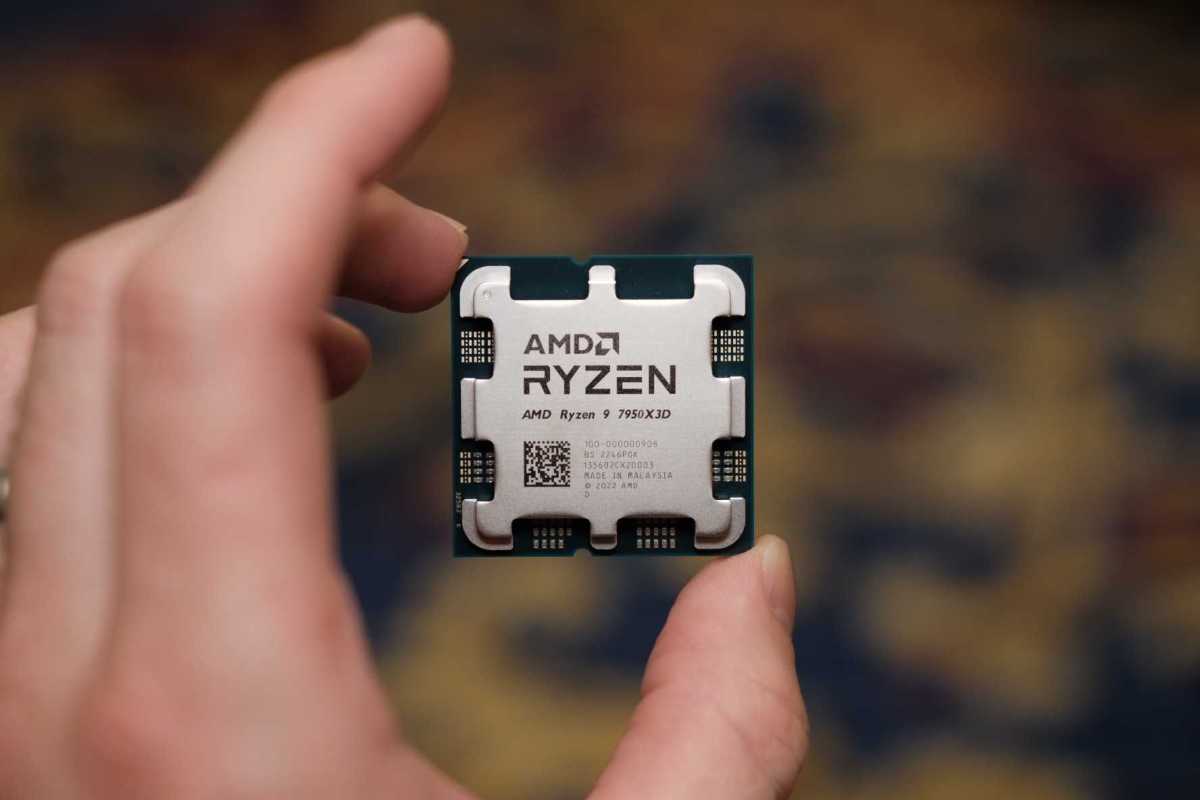
Adam Patrick Murray / IDG
On site after site, the benchmarks show a similar outcome—the Ryzen 7 7800X3D punching way above its weight class in games. Whether it’s Tom’s Hardware or TechSpot, this processor’s average performance in games puts it on the same footing as its much more expensive sibling, the 7950X3D. And that’s a CPU which edges past Intel’s top chips, like the Core i9-13900K.
In fact, when looking at the aggregate scores, the 7800X3D sometimes displaces the 7950X3D from top spot. And for the reviews where it doesn’t, you’ll usually find it in second place. Meanwhile, Intel’s $418 Core i7-13700K—its closest rival in price—trails behind. Depending on the benchmarking suite (as reviewers don’t have complete overlap in the games they test with), the 7800X3D can offer about 6 to 13 percent higher performance on average.
That said, the Ryzen 7 7800X3D doesn’t always top the charts in every single individual game. In titles with better optimization for Intel processors, or ones more affected by clock speed than cache size, the 7800X3D falls to the middle or even toward the bottom of the pack of high-powered processors. If you fire up the same game every night (e.g., Counter-Strike: Global Offensive) and expect top frame rates from your system, you should examine the relevant test results to make sure this processor is a good match.
But it’s not as great in other tasks
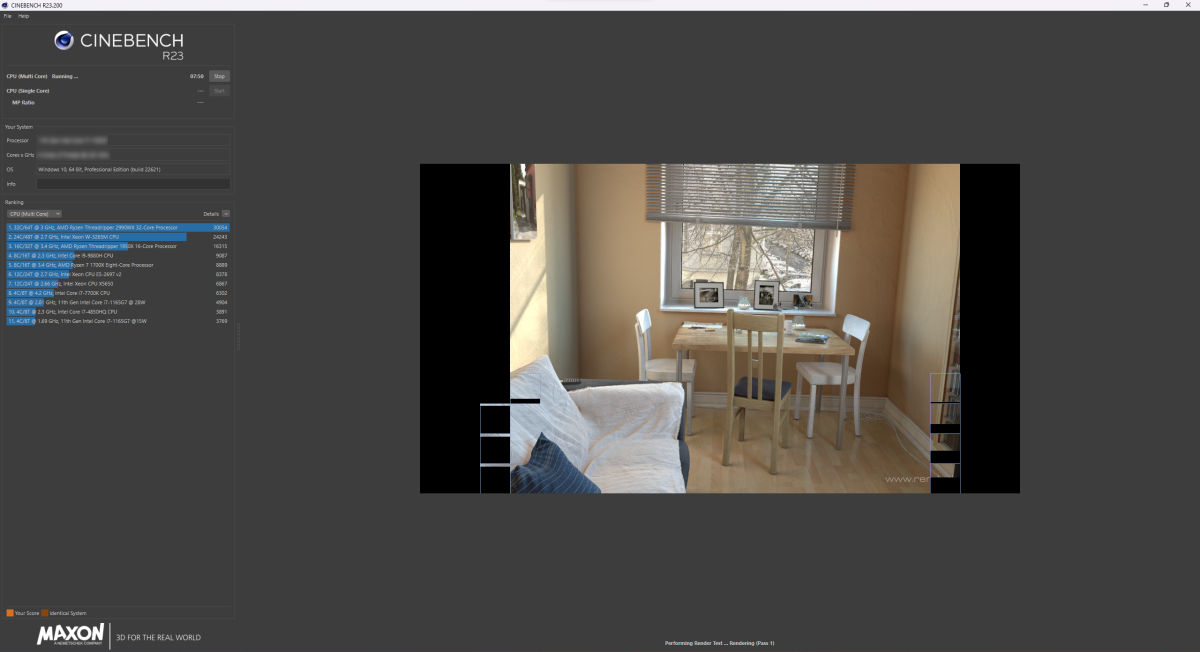
PCWorld
Throw games at the Ryzen 7 7800X3D, and it’ll handle most of them with aplomb. Even when falling notably behind the top performers, it posts big frame rates. You’ll notice the differences even less at higher resolutions and/or graphical settings that shift more work onto your graphics card—which can make its relatively more affordable price all the more alluring compared to other Ryzen 9 and 7 parts, as well as Intel Core i9 and i7 CPUs.
However, with non-gaming tasks, the Ryzen 7 7800X3D’s results can’t be contextualized in the same way. Either a chip is faster in encoding and rendering, or it’s not. And for anything heavily reliant on CPU speed or core count, the 7800X3D lags behind. You can see it for yourself in Cinebench R23 multicore results—compared to the 13700K, AMD’s latest is 37% slower in TechSpot’s review. Other outlets had similar findings.
This behavior tracks with what we saw in the first-generation 3D V-Cache CPU, the similarly fantastic Ryzen 7 5800X3D (the 7800X3D’s predecessor!), as well as the 7950X3D when it launched. Neither of those chips could pull even with their X-variant siblings (5800X, 7950X) in content creation tasks.
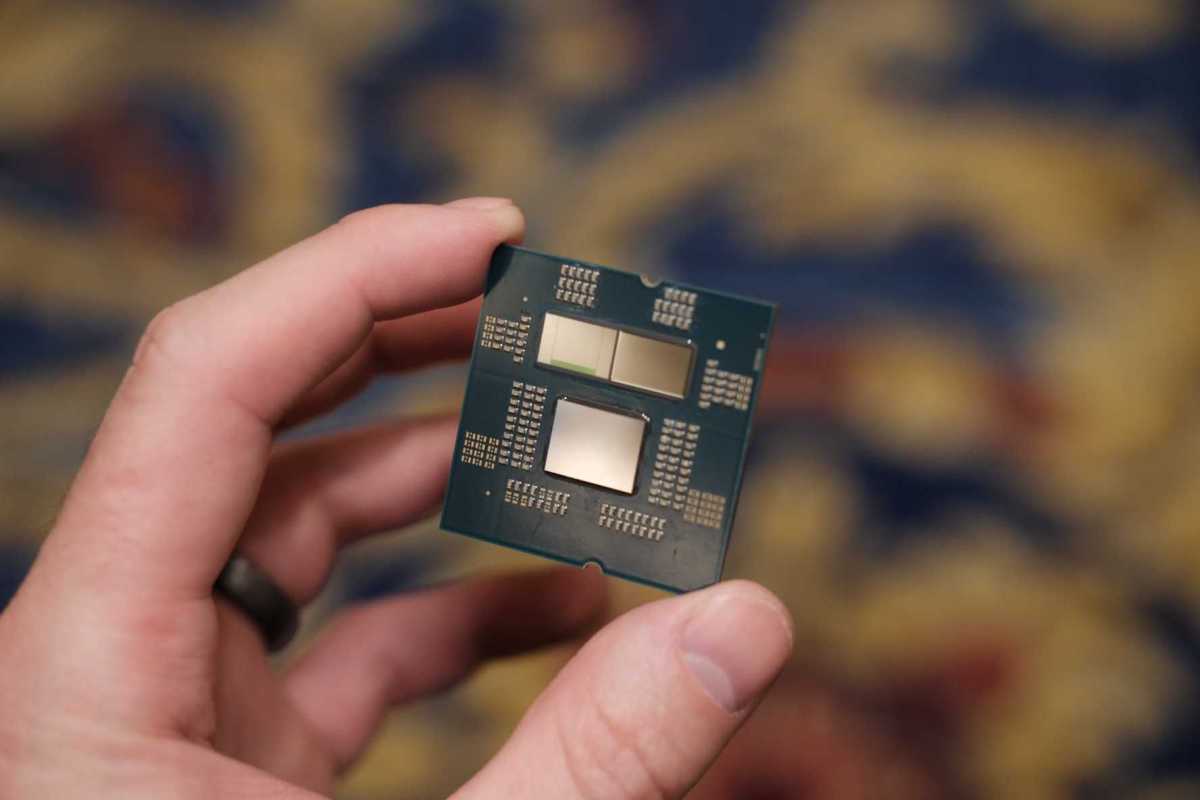
Adam Patrick Murray / IDG
But AMD’s two higher-end Ryzen 7000 3D V-Cache processors can still rip through heavy production workloads—they’re not incapable, just a little slower than the top CPUs in that regard. They’re well-suited for gamers who also want strong performance in all-core workloads, just not as much as someone whose main priority is work first, play second.
Meanwhile, the Ryzen 7 7800X3D is first and foremost a gaming CPU. If you need a processor with more even, balanced performance across the board, a rival like Intel’s Core i7-13700K will be a more ideal choice. But if you’re all in on gaming performance and can wait longer for encode to finish, this is your chip.
It’s the most power-efficient gaming chip
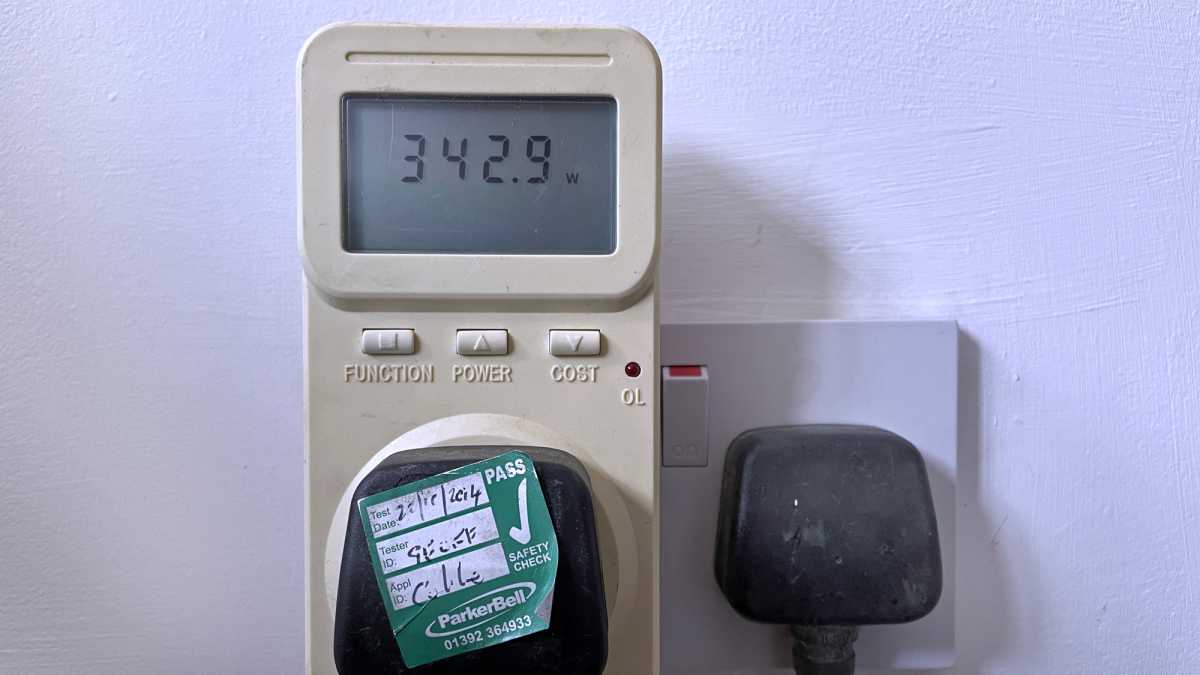
Jim Martin / Foundry
In chart after chart measuring power consumption, the Ryzen 7 7800X3D drinks down electricity far more modestly than similarly priced processors—and definitely less than AMD and Intel’s standard flagship CPUs.
The exception, of course, are the other 3D V-Cache CPUs. These parts consume less energy due to lower voltages, in turn lowers the amount of heat produced—a necessary design choice to mitigate the thermal consequences of having more L3 cache stacked on.
So on occasion, you can see a benchmark result where the 7950X3D noses past the humbler Ryzen 7 7800X3D. But overall, the 7800X3D hits a utility bill far more softly than the 7950X and 13900K, which take no prisoners and make no apologies for gobbling down watts. Its weaker production performance can be traced directly to how much energy it uses. Just have a peek at TechSpot’s examination of electricity used while running a Blender rendering test. The 13700K is 44 percent faster, but it also consumes 89 percent more power.
In games, the gap isn’t quite so wide, but still notable—you’ll see differences between 20 and 28 percent in power consumption compared to chips like the 13700K and 13900K, often while the Ryzen 7 7800X3D is outperforming them. And as you might guess, using less energy not only translates to bigger savings on your utility bill, but less heat to dissipate. TechSpot never saw the 7800X3D rise above 84 degrees Celsius during all-core workloads in Cinebench R23, or 66 degrees during the program’s single-core test.
You shouldn’t buy this instead of a more powerful GPU
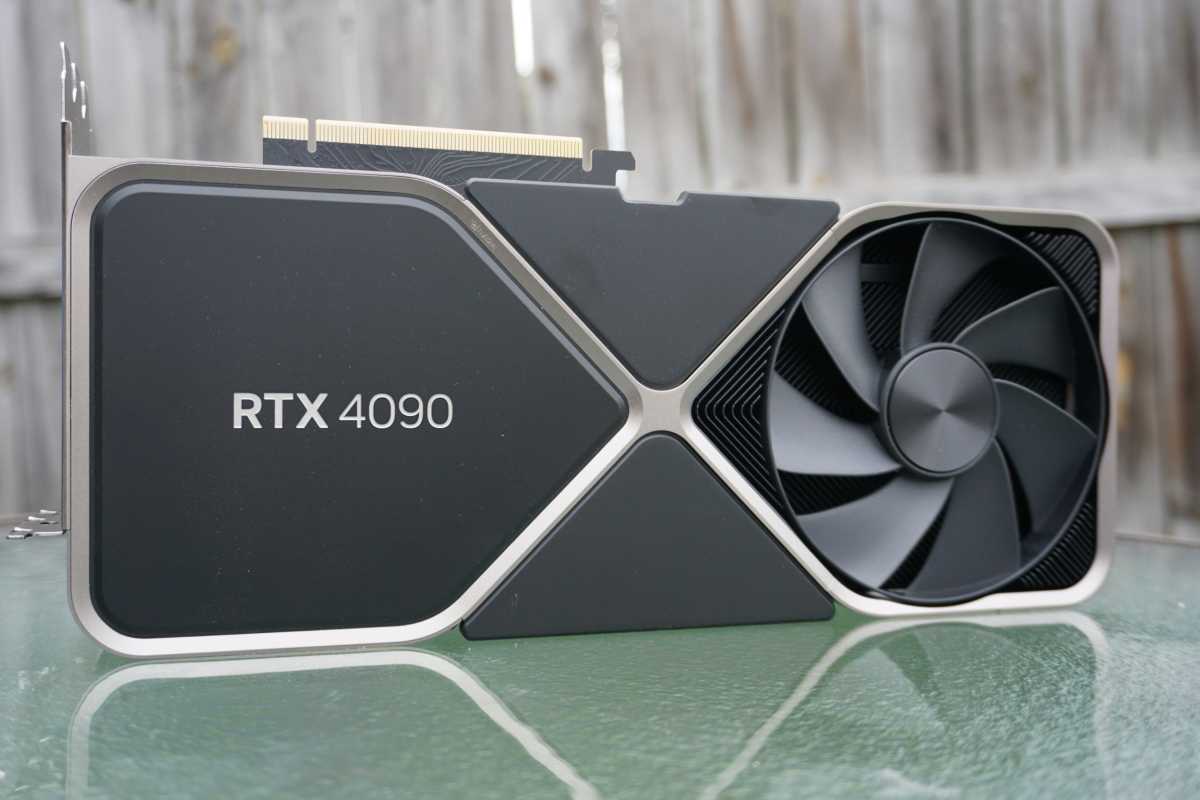
Brad Chacos/IDG
The Ryzen 7 7800X3D is a ferocious chip, but you won’t benefit if it’s the most powerful component in your build. Unlike with a processor that can also tear through production work, its main purpose is to keep your gaming rig firing on all cylinders.
And in a gaming rig, you’ll be best served by skewing your budget more toward your GPU, rather than your CPU. You don’t want your processor to bottleneck your graphics card, of course, but if your CPU is more powerful than the GPU, you’re not making the most of your build.
Given how far the Ryzen 7 7800X3D can stretch its legs, it can comfortably partner the best video cards on the market, e.g., the Nvidia GeForce RTX 4090 or AMD Radeon RX 7900 XT. It’s the best gaming CPU for high-end yet still price-conscious shoppers—when you want the absolute best for the wide variety of games you play, without overspending on performance for heavily threaded or clock-speed-sensitive workloads you’ll never run.
So if you’re deciding between an RTX 3060 and an RTX 3070 (or Radeon RX 6800 XT), the better graphics card and a cheaper (say, $300) CPU will give you better bang for your gaming buck. That doesn’t make the 7800X3D a bad choice—rather, it’s best suited for high-end gaming rigs where the CPU could be a potential choke point.
Intel still holds the lead on value
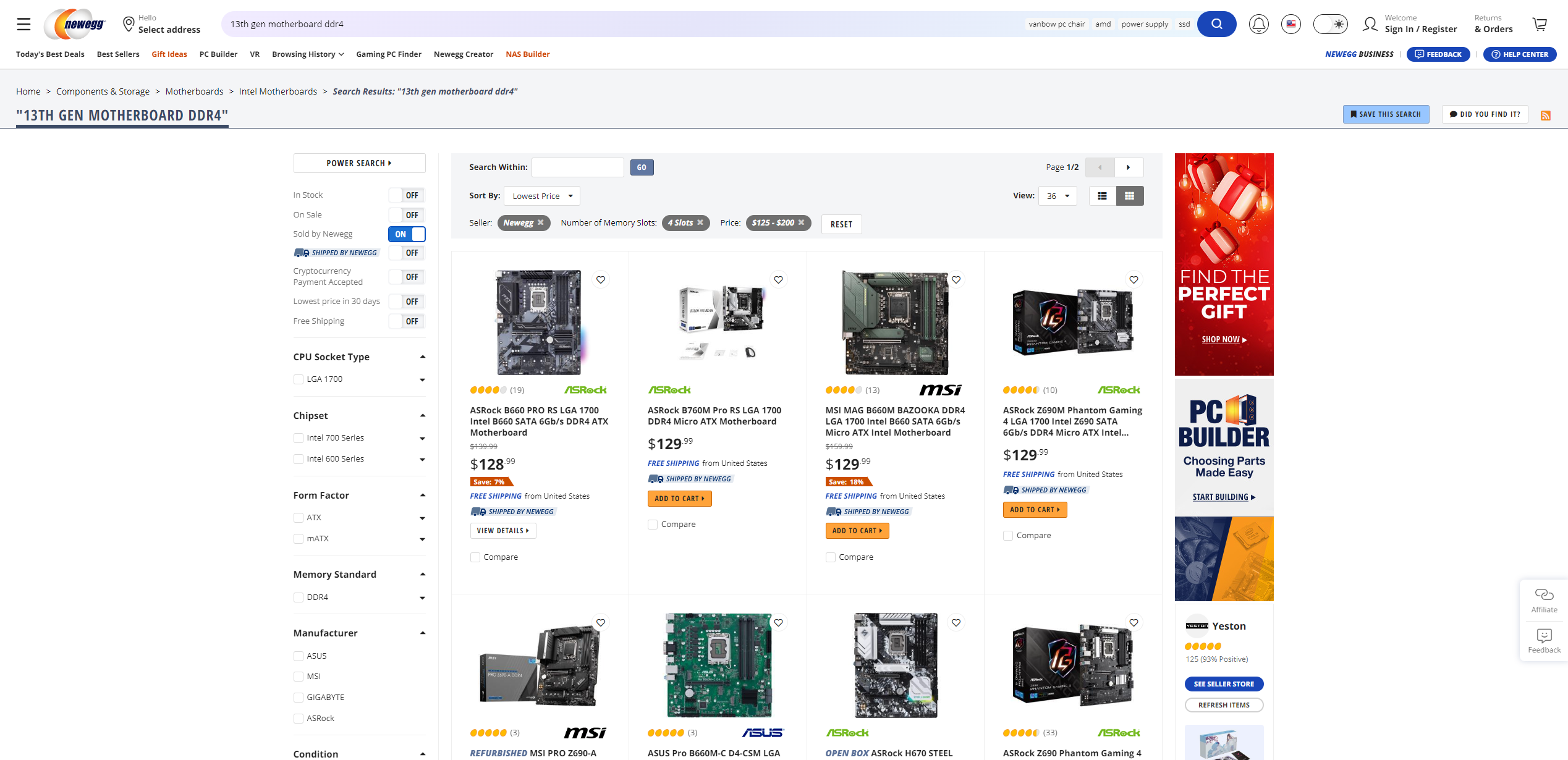
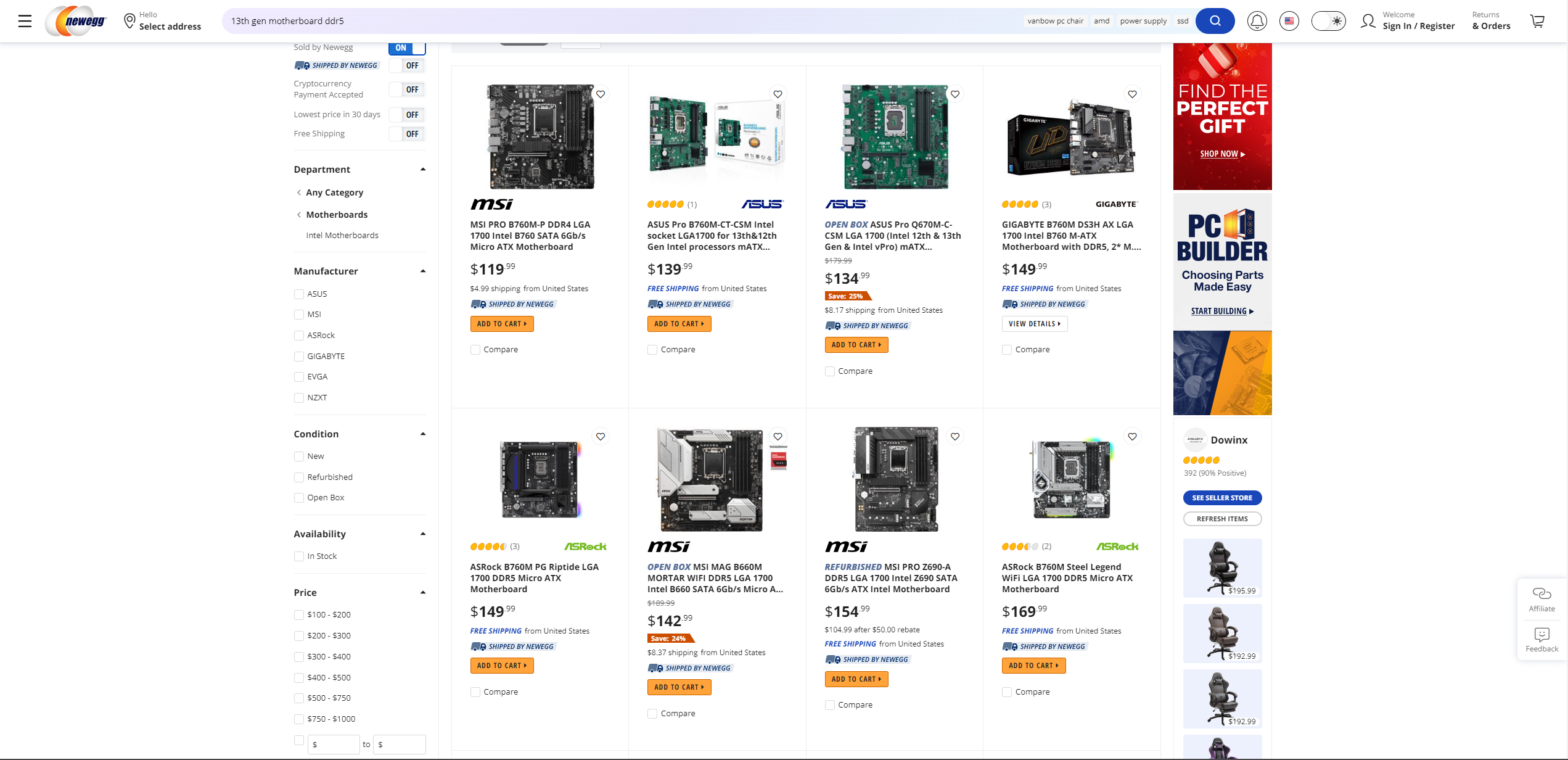
Would-be buyers of Ryzen 7000 CPUs got welcome news this week—the launch of a budget A620 chipset for AM5 motherboards. But even if you were to scrape that low to save a few bucks (perhaps to afford the 7800X3D, however ill-advised), the reality is that you still can’t beat the savings you can get with an Intel chip. Not if you’re willing to drop down to slower (and cheaper) memory.
AM5 motherboards—the sole motherboards compatible with Ryzen 7000—support DDR5 memory only. Prices have come down for this faster RAM, but they haven’t bottomed out to match DDR4 memory pricing yet. Meanwhile, DDR4 motherboards exist for Intel chips, and they’re cheaper than DDR5 motherboards. So you’ll save on both the mobo and the memory with Intel.
For all the latest Technology News Click Here
For the latest news and updates, follow us on Google News.
